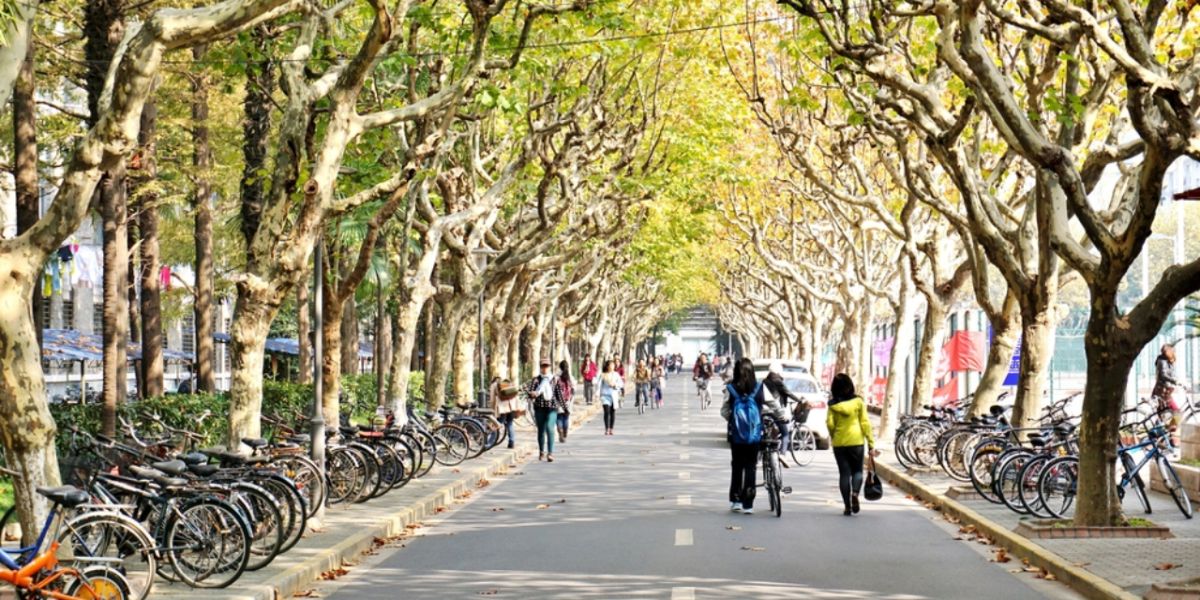
Studying abroad can be an exciting and eye-opening experience in a variety of ways. Especially if you have chosen China's most international city, Shanghai, as your academic destination. Home to several of the world's top-ranking universities and offering a variety of post-graduate career options, Shanghai is a popular destination for international students. From learning Chinese and exploring the local culture to getting to know other students from all over the world, you will find it almost impossible to get bored in this bustling metropolis
Student housing in Shanghai
The majority of students studying in Shanghai universities live on campus in dorms, as these are often covered in a scholarship. However, there are also many who choose to find housing off-campus. International students can do this as well with permission from the university. Living on campus can be a great way to blend into the environment, meet other students and get more involved in student life. With that, having your own place definitely comes with its undeniable benefits.
Before making the decision about your housing, make sure to check rent prices in your university neighborhood. Accommodation in Shanghai, and especially its central areas, is notoriously expensive: even a small studio in the busy district of Shanghai can leave you
RMB 8,000 short. One way to save money on rent but still live off campus would be to get a shared apartment, a widespread practice among young people in Shanghai. A room in a shared apartment can cost you as low as RMB 2,000, depending on the area and the size of the place.
Living in Shanghai as an international student
Even though the cost of living in Shanghai has risen significantly in recent years, international students can still live a comfortable lifestyle here. Most scholarships cover expenses related to housing (mostly dormitories on campus) as well as meals at the university canteen. Health insurance will also be included in scholarships and is generally provided with any student visa for China.
Even if a scholarship does not cover your studies and stay in the city, Shanghai offers plenty of options for living on a budget. Eating at local restaurants, traveling on public transportation and using student discounts whenever possible can save you quite a few yuan at the end of the month. When studying at a Shanghai university, you will receive a student ID card, which will not only be useful inside the university walls but can also earn you a few discounts around town.
You will be able to get discounts for entry to popular attractions in the city at restaurants, libraries, book shops, language training centers, and other locations.
The good news is that new governmental policies now allow international students to do internships with permission from the school. Previously, you would not be allowed to seek any kind of employment in Shanghai when on a student visa. Having realized the significant advantages of international graduates remaining in the country for work, China has implemented new regulations to make it easier to stay and work in China. The new regulations were introduced in January 2017 and state that foreign graduates with a master's degree or above from a university in China can apply for work visas straight away within one year of graduating.
Local cuisine in Shanghai
Food is one of the attractions wherever in China you are. Many people coming here are surprised that the food tastes very different from Chinese restaurants in the West. This is because China has eight regional cuisines that differ in ingredients used and preparation methods. In Shanghai, you will be able to sample all different types of dishes from across China. However, the city also has its own unique flavor. Shanghai cuisine is noted for its sweet taste and extensive use of fresh ingredients and seafood.
There is one must-try staple that you will find in any student canteen or street food stall: xiao long bao is steamed buns filled with meat and soup and are a real local favorite.
Communication and social media in Shanghai
Even though Shanghai is probably the most diverse and international city in China, English isn't as common as you might think. Therefore, it is recommended to learn Chinese as quickly as possible to minimize the language barrier.
Another thing of note is social media. Some social media platforms are blocked in China, including Facebook, Twitter, Instagram, and Google. You can still access these apps and websites — but you will need to use a VPN (Virtual Private Network). A lot of expats in China do use VPNs on a daily basis. However, you also need to know that using VPNs is illegal in China, and you may be fined if you do this publicly.
With that, there are local 'replacements' that have become very popular with both locals and expats living in China. WeChat is currently China's number one social media tool and more: it can be used for chatting, calls and voice messages, mobile payments, and more.
Useful links:
We do our best to provide accurate and up to date information. However, if you have noticed any inaccuracies in this article, please let us know in the comments section below.








